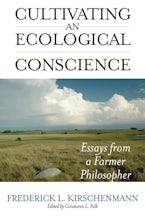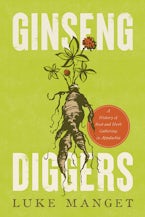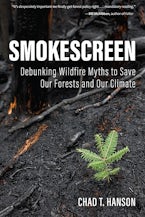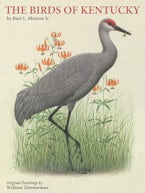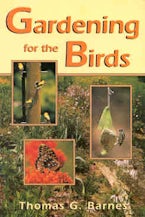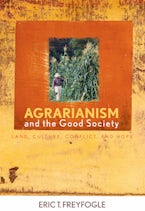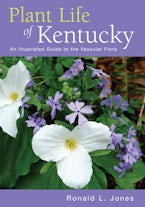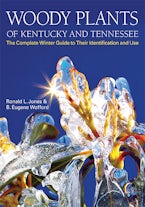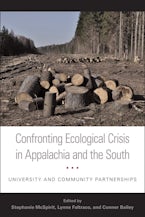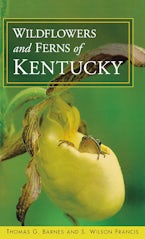Frederick L. Kirschenmann was named as one of ten recipients of the inaugural James Beard Foundation Leadership Award in 2011.
Fred Kirschenmann may not be as well-known as Wendell Berry or Wes Jackson, America's other indispensable farmer-philosophers, but the publication of this superb collection of essays should fix that. These essays make clear to all what some of us have long known: that Fred is one of the wisest, sanest, most practical, and most trusted voices in the movement to reform the American food system.
~Michael Pollan, author of
There's almost nobody in America more entitled to write about farming than Fred Kirschenmann. We're past the moment when agriculture was something we could forget about—in a warming world, there's no more crucial topic, and here's the short course in how to think about it!
~Bill McKibben, author ofEarth: Making a Life on a Tough New Planet
Fred Kirschenmann is a rare seasoned elder always ready to display good sense on matters agricultural, cultural, historical, ecological, religious, and more. Who among us can match his experience, gained from a combination of work in the academic world plus another successful life at work on his North Dakota farm?
~Wes Jackson, president of The Land Institute and author of Consulting the Genius of the Place: An Ecological Approach to a New Agriculture
Fred Kirschenmann's life and thought lie in the fertile and practical intersection of theology, farming, and science. He is a practitioner, thinker, and visionary of extraordinary power. This collection is immensely valuable as a collection of his writings, but even more so as a portrait of the possible union of ethics and agriculture as the foundation for a durable relation to the land.
~David W. Orr, author of Earth in Mind: On Education, Environment, and the Human Prospect
Folks who care about farming and the land will enjoy this book.... You can't go wrong!
~University of Illinois at Urbana-Champaign
Describes food production as part of resurrection process, with death providing life a natural and theologically necessary part of creation's existence.
~Land Stewardship Letter
In a unique blend of personal history, philosophical discourse, spiritual ruminations, and practical advice, Kirschenmann interweaves his insights with discussion of contemporary agrarian topics.
~University of Chicago Magazine
An impressive analysis and reflection of the art and science of agricultural.... This work is a window into a life well-lived and deeply examined.
~WFAN NEWS
Lays out an agrarian philosophy that is part science, part faith, and part firsthand experience.
~University of Chicago Magazine
More than a collection of writing that spans over three decades, this book is a treasure that should reside on a nerby shelf for ready reference for any person concerned about the future of food and the environment.
~Journal of Sustainable Agriculture
A unique read into why, what, and how an ecological revolution is needed... [Cultivating an Ecological Conscience is] accessible and appealing to the (academic) philosopher as well as the farmer reader and everyone in between.
~Environmental Ethics
[Writing of] the material world... technical ag fixes.... [and] the potentials of urban agriculture...seems doubtful we've heard the last of Fred.
~Wapsipinicon Almanac
This compilation of 37 essays describe the current state of agriculture and demonstrate that Kirschenmann—organic farmer, agrarian and philosopher—has both personal knowledge of natural farming practices and an understanding of the drawbacks of industrial agriculture.
~Farmers Market Today
Cultivating an Ecological Conscience is an absolutely essential read for all those unfamiliar with the direction of cutting edge agriculture and a positively uplifting read for all those who are already there and seeking ways to connect environmental concepts with the production of food in the twenty-first century.
~Energy Bulletin
Sprawling and magisterial, Frederick L. Kirschenmann's collection of essays... expresses an erudition that encompasses reflections on everything from the philosophical implications of castrating calves, to the unseen ecological threats of integrating biotechnology into the process of food production, to seriously considering the role of marketing for the small-time organic farmer.
~Tom Jacobs, New York Institute of Technology
In Cultivating an Ecological Conscience, essays and lectures from a broad range of events, journals, and forums come together to form a remarkably cohesive whole.
~Journal of Agriculture, Food Systems, and Community Development
A text that should be read start to finish. Not because every sentence is first-rate, but because a story is told.
~Agriculture and Human Values
With beautiful language, a gentle tone yet strong voice is cultivated in the book that reawakens the senses and embodies the tasks Kirschenmann sets for the reader.
~Li An Phoa, Environmental Ethics
Cultivating is a text that should be read start to finish...because a story is told. That narrative is one man's continuing journey towards a harmonic way of life with the biotic community...Kirschenmann continues to develop his own agroecological thought and this text might guide readers developing their own ecological consciousness.
~Robert J. Wengronowitz, Agricultural and Human Values
Kirschenmann has explored how philosophical questions relate to farming in an extraordinarily sensitive, thorough manner, over 40 years of writing, speaking and leadership. In Cultivating an Ecological Conscience, essays and lectures from a broad range of events, journals, and forums come together to form a remarkably cohesive whole.
~Journal of Agriculture, Food Systems, and Community Development
